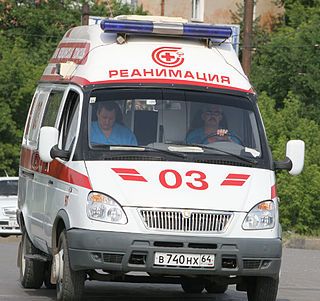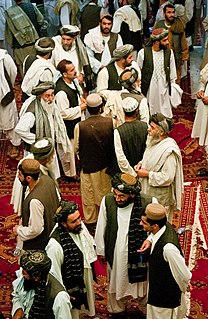
The Armed Forces of the Russian Federation, commonly known as the Russian Armed Forces are the military forces of the Russian Federation, established after the dissolution of the Soviet Union. On 7 May 1992, Boris Yeltsin signed a presidential decree establishing the Russian Ministry of Defence and placing all Soviet Armed Forces troops on the territory of the Russian Soviet Federative Socialist Republic under Russian control. The Commander-in-Chief of the Armed Forces is the President of Russia. The Russian Armed Forces were formed in 1992. It is one of the world's largest military forces. According to Credit Suisse, Russia has the world's second-most powerful military. It is also the world's second largest arms exporter.

Vladimir Vladimirovich Putin is the President of Russia since 2012, previously holding the position from 2000 until 2008. In between his presidential terms, he was also the Prime Minister of Russia under president Dmitry Medvedev.

Yekaterinburg, alternatively romanized Ekaterinburg, is the fourth-largest city in Russia and the administrative centre of Sverdlovsk Oblast, located on the Iset River east of the Ural Mountains, in the middle of the Eurasian continent, on the Asian side of the boundary between Asia and Europe. It is the main cultural and industrial centre of the oblast. In 2018, it had an estimated population of 1,501,652. Yekaterinburg has been dubbed the "third capital of Russia", as it is ranked third by the size of economy, culture, transportation and tourism. It is located about 1,420 kilometres (880 mi) to the east of Moscow.

Astrakhan is a city in southern Russia and the administrative center of Astrakhan Oblast. The city lies on two banks of the Volga River, close to where it discharges into the Caspian Sea at an altitude of 28 meters (92 ft) below sea level. As of the 2010 Census, its population was 520,339; up from 504,501 recorded in the 2002 Census and 509,210 recorded in the 1989 Census.

Moscow State University is a coeducational and public research university located in Moscow, Russia. It was founded on 23 January [O.S. 12 January] 1755 by Mikhail Lomonosov. MSU was renamed after Lomonosov in 1940 and was then known as Lomonosov University. It also houses the tallest educational building in the world. Its current rector is Viktor Sadovnichiy. According to the 2018 QS World University Rankings, it is the highest-ranking Russian educational institution and is widely considered the most prestigious university in the former Soviet Union.

The Russian Air Force is a branch of the Russian Aerospace Forces, the latter being formed on 1 August 2015 with the merger of the Russian Air Force and the Russian Aerospace Defence Forces. The modern Russian Air Force was originally established on 7 May 1992 following Boris Yeltsin's creation of the Ministry of Defence; however, the Russian Federation's air force can trace its lineage and traditions back to the Imperial Russian Air Service (1912–1917) and the Soviet Air Forces (1918–1991).

The S-400 Triumph, previously known as the S-300PMU-3, is an anti-aircraft weapon system developed in the 1990s by Russia's Almaz Central Design Bureau as an upgrade of the S-300 family. It has been in service with the Russian Armed Forces since 2007. In 2017 the S-400 was described by The Economist as "one of the best air-defence systems currently made". According to Siemon Wezeman Senior Researcher of SIPRI the S-400 "is among the most advanced air defence systems available".
Racism in Russia appears mainly in the form of negative attitudes and actions by some Russians toward people who are not ethnically Russian. Traditionally, Russian racism included antisemitism and Tatarophobia, as well as hostility towards various ethnicities of the Caucasus, Central Asia, East Asia and Africa. In 2006, Amnesty International reported that racism in Russia was "out of control." Russia also has one of the highest immigration rates in Eastern Europe.
Azerbaijanis in Russia or Russian Azerbaijanis are Azerbaijani people in the Russian Federation, and are Russian citizens or permanent residents of ethnic Azerbaijani background. Aside from the large Azeri community native to Russia's Dagestan Republic, the majority of Azeris in Russia are fairly recent immigrants. Azeris started settling in Russia around the late nineteenth century, but their migration intensified after World War II, and especially after the collapse of the Soviet Union in 1991. According to the 2010 All-Russian Population Census, there are 603,070 Azeris residing in Russia, however the actual numbers may be much higher due to the arrival of guest workers in the post-Soviet era. The estimated total Azeri population of Russia as of 2002 might have reached as many as 3,000,000 people, with more than one and half million of them living in Moscow, though in the following decade there was a tendency for many Azeris to move back to Azerbaijan. The majority of post-1991 ethnic Azeri migrants have come to Russia from rural Azerbaijan, Georgia and Armenia. Today most provinces of Russia have more or less significant Azeri communities, the biggest ones, according to official numbers, residing in Dagestan, Moscow, Khanty–Mansi, Krasnoyarsk, Rostov-on-the-Don, Saratov, Sverdlovsk, Samara, Stavropol, etc.

Higher School of Economics, official full name National Research University Higher School of Economics is a state university in Russia.

Healthcare in Russia is provided by the state through the Federal Compulsory Medical Insurance Fund, and regulated through the Ministry of Health. The Constitution of the Russian Federation has provided all citizens the right to free healthcare since 1996. In 2008, 621,000 doctors and 1.3 million nurses were employed in Russian healthcare. The number of doctors per 10,000 people was 43.8, but only 12.1 in rural areas. The number of general practitioners as a share of the total number of doctors was 1.26 percent. There are about 9.3 beds per thousand population—nearly double the OECD average.

Indo-Russian relations foreign policy are the bilateral relations between India and Russia. During the Cold War, India and the Soviet Union (USSR) had a strong strategic, military, economic and diplomatic relationship. After the collapse of the USSR, Russia inherited its close relationship with India which resulted in a special relationship. The relations between Russia and India is an important and privileged strategic partnership. Owing to the bonhomie shared by the countries' respective leaders, Prime Minister Narendra Modi and President Vladimir Putin, the bilateral relationship has seen further growth and development. An informal meeting between them in 2018 at Sochi helped accelerate the partnership, displaying the role of interaction and cooperation between India and Russia.
Oleg Anatolyevich Platonov is a Russian ultranationalist writer and Holocaust denier. He is the Director General of the Institute for the History of Russian Civilization, a Moscow-based think tank. He is known for promoting the antisemitic conspiracy theory Judeo-Bolshevism, which claims that Jews were responsible for the Russian Revolution.
The Centre for Analysis of Strategies and Technologies (CAST) is an independent, for-profit Russian think tank located in downtown Moscow. CAST conducts research and analysis on Russian conventional arms trade, Russia's defense industry, military conflicts, Russian military reform, and international defense trends. Although it is primarily focused on Russia and the former Soviet Republics, CAST has also written reports and books on the defense industries of China, India, Turkey, and many European nations. CAST publishes two journals, the English language Moscow Defense Brief and Russian language Eksport Vooruzheniy, and the daily Russia media digest Periscope. In addition, CAST has written a number of books, including the critically acclaimed Tanks of August, Russia's New Army, and Brothers Armed: Military Aspects of the Crisis in Ukraine. CAST also runs the popular Russian language blogs Periscope 2 and BMPD, which provide daily articles on Russian and international defense news. CAST offers consultation, analysis, and information services to Russian government agencies, defense industry companies, banks, and investment institutions. Although it has conducted research projects for the Russian government, CAST is a privately owned and operated company, and all of its revenue is derived from research and media products, consultation services and other projects.
There are hundreds and thousands of Pakistani students who travel abroad each year in order to attain higher education. Countries which have large Pakistani international student populations include those in Europe, North America, China and Australia. Every year, nearly 10,000 foreign student visas are granted in Pakistan.

The 2017–2018 Russian protests were a long series of countrywide street protest actions and demonstrations in the Russian Federation, with the major requirements of:

Adelaida Semyonovna Simonovitch was a Russian educator and the founder of the first kindergarten in Russia. She also was the first Russian theorist of public preschool education and published books and journals advocating early childhood development.















